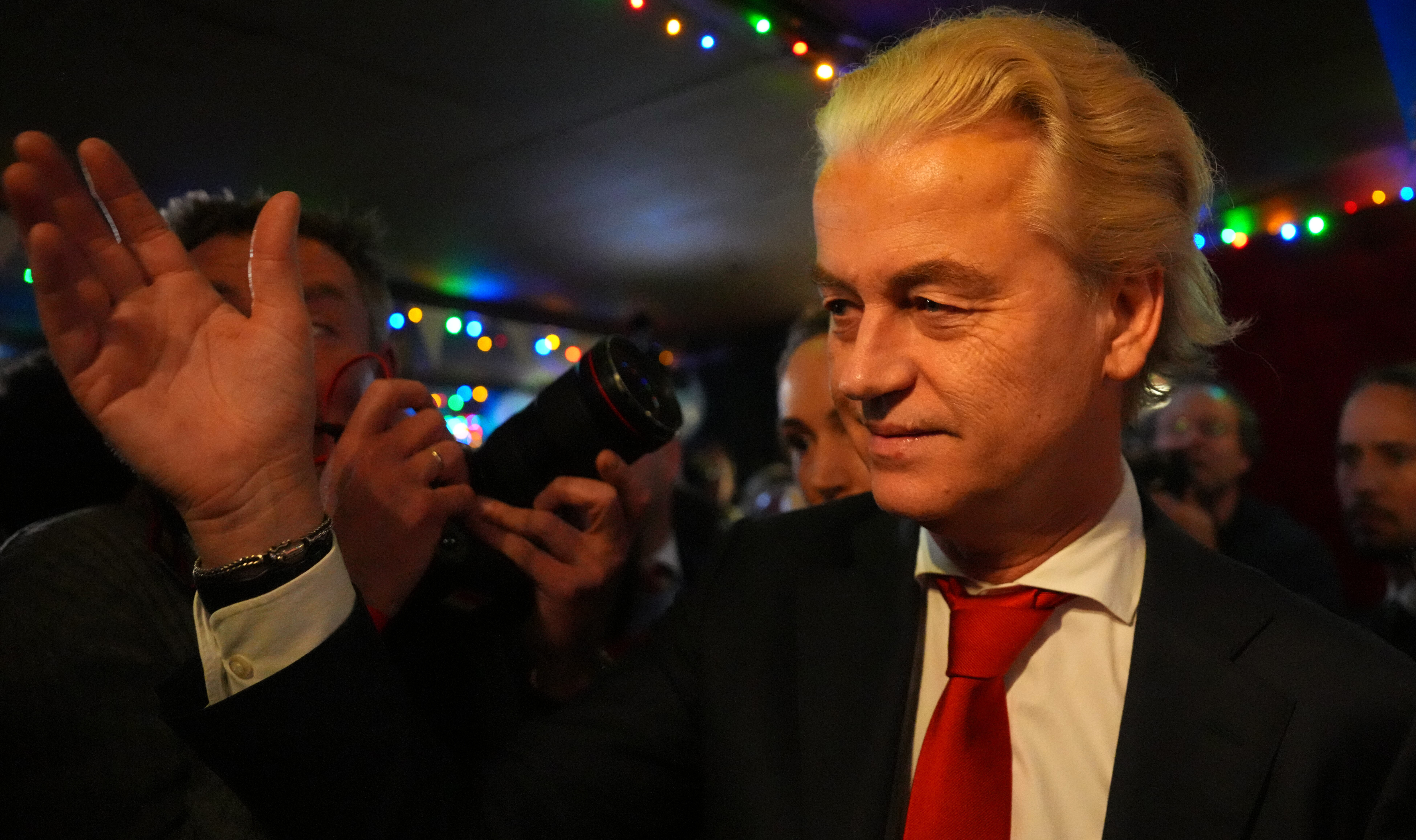The dam is breached. The “shock election victory” of Geert Wilders and his Party for Freedom (PVV) will reverberate through all of Europe. The Dutch people decided to cast their vote for the Right-wing firebrand — and massively so, at least considering the conditions of the country’s parliamentary system. With a notoriously high number of political parties participating in elections, 23% of votes going to the PVV still qualifies as a political earthquake.
It means that the party will more than double its numbers in parliament, most likely ending up with 37 seats out of 150. It also means, however, that the PVV still falls short of the 76 seats needed for Wilders to become prime minister. So, despite all the celebrations, it will probably be months of negotiations before a new government is sworn in, and whether his party will be part of it remains an open question.
Either other Right-of-centre parties will drop their opposition to working with Wilders, or they will persuade him to support a government without being part of it (similar to the role the Sweden Democrats play in Stockholm). Alternatively, there will be new elections. At this point it is simply too soon to tell.
One thing, though, has become clear. The people of Western Europe are losing their hesitancy when it comes to voting for Right-wing parties, and Wilders’s success is most likely only the beginning. Austria has elections next autumn, and the Austrian Freedom Party (FPÖ) is poised to become the strongest force in parliament for the first time in history. Although it has a similar name to its Dutch counterpart, the FPÖ is economically more statist. It does, however, broadly agree with Wilders’s rejection of mass immigration and his views on Islam.
In Germany, meanwhile, the AfD has fortified second place in the polls, and with Right-wing parties surging in neighbouring countries, it will become increasingly difficult for the conservatives to refuse to cooperate at a local and federal level. In France, Marine Le Pen’s Rassemblement National (RN) is the country’s most trusted party according to recent polls, and her personal image among voters has been improving significantly.
Wilders’s placing in the election was highly unlikely a few months ago. If this is the beginning of a trend, Western Europe has to prepare for the aftershocks. An FPÖ victory in Austria in the autumn of 2024 will boost the AfD’s elections prospects for 2025, which in turn will energise the Le Pen campaign in 2027. Simultaneously, the isolation of figures such as Hungary’s Viktor Orban will become harder to maintain, as it will be easier for him to find like-minded members in Western European governments. The Dutch dykes have broken, and it looks like a wave of Right-wing populism is coming for the rest of Europe.











Join the discussion
Join like minded readers that support our journalism by becoming a paid subscriber
To join the discussion in the comments, become a paid subscriber.
Join like minded readers that support our journalism, read unlimited articles and enjoy other subscriber-only benefits.
Subscribe